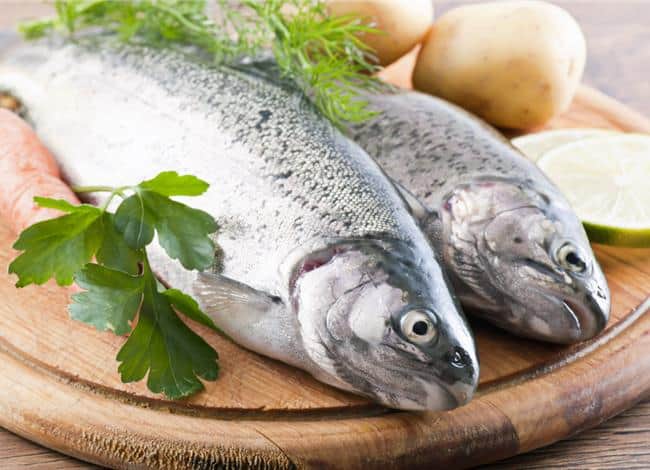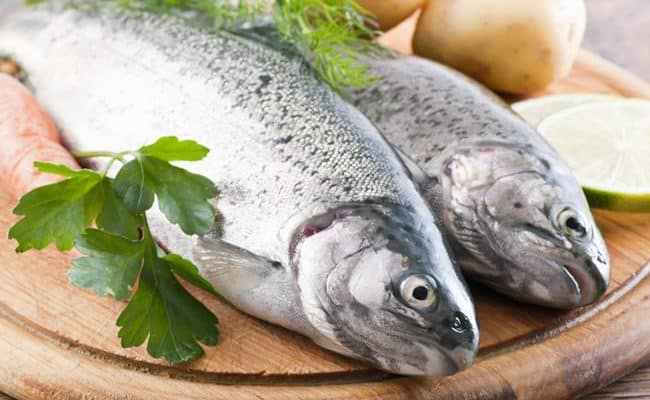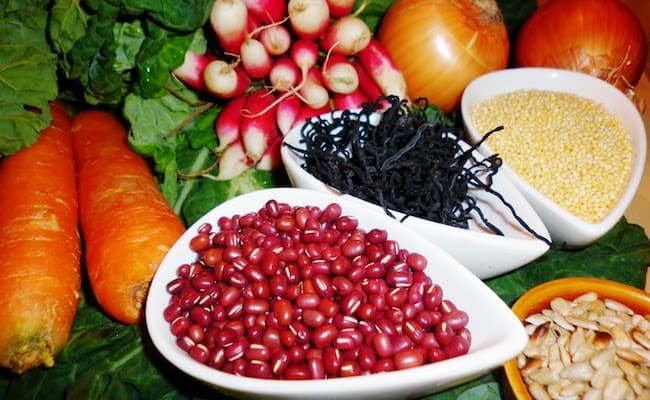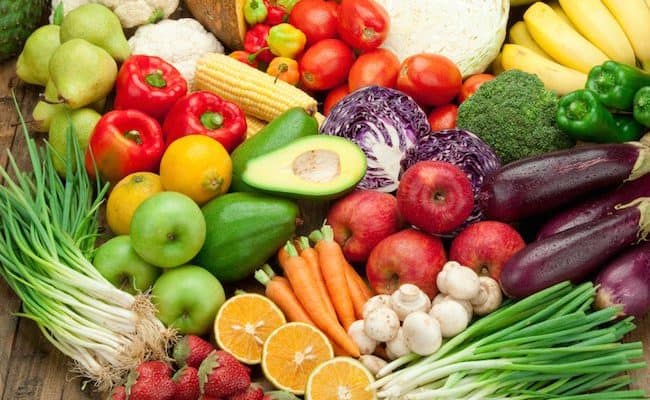
Both a vegan and vegetarian diet limit animal based foods and focus on eating plant foods. Eating more plant foods and less animal foods has been associated with health benefits such as lowered risk for some cancers and cardiovascular disease.
Cutting out animal foods will lower saturated fats and dietary cholesterol which could be a reason for boosting heart health. Eating more plant foods can also increase your intake of antioxidants, fiber, heart healthy fats and some vitamins and minerals.
Both a vegan and vegetarian diet can be healthy eating patterns as long as proper planning is in place. Focusing on plant foods should mean eating many fruits, vegetables, legumes, whole grains, nuts and seeds.
It is possible to still eat too much junk food following a vegan or vegetarian diet which is not advantageous.
People following the more restrictive vegan way of eating can be at risk for not getting enough of certain nutrients through the diet like iron, vitamin B12, zinc or possibly calcium.
Eating a balanced diet and some fortified foods is recommended to maintain adequate intake levels of all nutrients when following a vegan diet.
What is a vegetarian diet?
A vegetarian diet can look many different ways, but in general it is cutting out meat from animals.
Vegetarians can get their protein from eggs, dairy, seafood, legumes and grains instead of meats. Not all vegetarians eat all these other protein foods, so if someone says they are a vegetarian ask what kind they are.
Pescatarians are vegetarians who eat seafood but abstain from all other meat. They may or may not also include eggs or dairy.
Lactovegetarians include dairy but not meats, and ovo-vegetarians include eggs in their diet but not meat.
Potentially you could have someone who eats fish, eggs and dairy but no other animal foods. Or, some vegetarians eat only one group of seafood, dairy or eggs but exclude all other animal based foods.
Some people may mostly eat a vegetarian diet but eat meat once in a while. There is a broad spectrum for following a vegetarian diet.
The health benefits associated with following a vegetarian diet usually lump all vegetarian lifestyles together.
An important note to consider too is following a vegetarian diet should be accompanied with other healthy habits like no smoking, none to moderate alcohol consumption and physical activity.
How is a vegan diet different?
A vegan diet, like vegetarians, cut out meat from their diet. However, they take it one step further and do not eat any other foods produced by animals including dairy, eggs, seafood and even honey.
Vegans may also be more likely to avoid other products that use animals like leather and cosmetics that allow animal testing.
A carefully planned vegan diet can be a healthy way to eat as long as you are supplementing some nutrients.
Certain nutrients like iron, zinc and vitamins B12 are mainly found in animal based foods.
Therefore, eating fortified foods or taking supplements is recommended.
Health benefits of following a vegetarian diet
According to a 2005 study (1), following a well-balanced vegetarian diet can be appropriate for almost anyone from young to old.
Following a vegetarian diet could help lower risk for diseases such as some cancers, cardiovascular disease, diabetes, osteoporosis, dementia, diverticular disease, gallstones and rheumatoid arthritis.
In fact, following a vegetarian diet could lower your risk of dying from heart disease by 25% compared to eating a normal diet according to research with over 76,000 people (2).
The association between lowered risk of cardiovascular disease and following a vegetarian diet is not conclusively known.
It could be the increase of antioxidants, fiber or other nutrients from plant based foods, not the absence of animal foods, provides the protection against diseases.
It could also be in some studies that other lifestyle factors play a role in improving health in people following a vegetarian diet.
Regardless, the association between eating more plant based foods and improved protection from some diseases has been shown even if the reason is not entirely known.
What about health benefits of following a vegan diet?
A 2009 review (3) found vegans are usually thinner, have lower LDL cholesterol and blood pressure compared to people following diets with animal foods and in some instances even compared to other vegetarians.
Researchers suggest more research is needed for long term effects of a vegan diet and health.
In general, however, if a vegan diet is properly planned and well balanced with fortified foods and supplements if needed, they can get adequate intakes of nutrients and may offer other health benefits.
Should you be a vegetarian or a vegan?
If you are wondering if following a vegetarian or vegan lifestyle would be best for you, speak with your healthcare team. Whether to go vegan or vegetarian could depend on other factors of your health and lifestyle.
Increasing plant foods like fruits, vegetables can be beneficial for anyone. Most people don’t get the recommended fruit and vegetable intake.
Keep in mind, it can still be easy to eat mostly junk food and be considered a vegan or vegetarian.
You can also follow a vegetarian or vegan diet and be deficient in key nutrients if the diets are not well planned.
Wherever you are on the spectrum of eating, make sure to get a variety of whole plant foods in your diet.
Conclusion
The main difference between a vegetarian and vegan diet is the amount of foods that are cut out. Vegans don’t eat any foods that are by-products of animals, even honey. Vegetarians could eat seafood, dairy and/or eggs, so there is more flexibility.
Studies have shown an association between following a vegetarian diet and reduced risk of certain chronic diseases and even lowered risk of death by heart disease.
Whether the benefit is from cutting out meat or because of the increase in plant foods is to be determined, but regardless of the reason eating more plant foods can be beneficial for health.
Following a vegan diet can also offer health benefits as long as it is well balanced and incorporates fortified foods and supplements if necessary.












